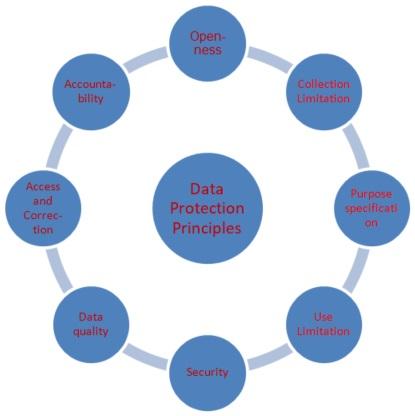Data Protection: Advantages and Disadvantages
Advertisement
This page explores the advantages and disadvantages of data protection, offering a basic understanding of the topic. It highlights the benefits and drawbacks associated with data protection.
What is Data Protection?
Introduction: Data protection focuses on safeguarding our fundamental rights to privacy, as defined in international and regional laws and conventions. Protecting user data and privacy rights is a major challenge for policymakers.

Data protection is closely linked to online trade of goods and services in the digital economy. Insufficient protection can negatively impact consumer confidence, while overly strict protection can hinder businesses and negatively affect the economy.
The rapid advancement of Information and Communication Technologies (ICT) such as cloud computing, IoT (Internet of Things), and big data analytics means that data protection, which relies on these technologies, is constantly evolving.
Here are the eight core principles of data protection:
- Openness: Organizations must be transparent about their personal data practices.
- Collection Limitation: Personal data collection must be limited, lawful, and fair, usually with knowledge and consent.
- Purpose Specification: The purpose of data collection and disclosure must be specified at the time of collection.
- Use Limitation: Data use or disclosure must be limited to specific or closely related purposes.
- Security: Personal data must be protected by appropriate security safeguards.
- Data Quality: Personal data must be relevant, accurate, and up-to-date.
- Access and Correction: Data subjects must have the right to access and correct their personal data.
- Accountability: Data controllers must be responsible for ensuring compliance with data protection principles.
Benefits or Advantages of Data Protection
Here are the key benefits of data protection:
- Data protection helps keep personal data secure and protected.
- It protects valuable information, such as business transactions and financial statements, boosting consumer confidence in online purchases and increasing revenue for both online and offline businesses.
- It improves the quality of stored and transactional data.
- It is technology-agnostic and can be applied universally.
- It reduces the risk of financial loss.
- It prevents the theft of company recipes, project/product documents, and software by competitor companies.
Drawbacks or Disadvantages of Data Protection
Here are the challenges and drawbacks of implementing data protection:
- Poor data protection processes can erode consumer confidence. Conversely, excessively stringent data protection can negatively impact the digital economy. Striking the right balance is essential.
- There is no single, universally accepted global agreement on data protection.
- Data protection is constantly challenged and influenced by technological advancements and evolving business practices. The relationship between data protection and online activities is dynamic.
- Maintaining data protection principles can be costly and time-consuming.
- Employees and stakeholders require appropriate training on data protection practices.
- Implementing the necessary technical and organizational measures to prevent unauthorized or unlawful processing of personal data can be challenging.
- Transferring personal data to countries with inadequate data protection laws can breach data protection regulations, unless those countries can ensure an adequate level of data protection and processing.
Conclusion
Understanding the advantages and disadvantages of data protection requires a grasp of its core principles and the key challenges involved in its implementation within a specific country.
Advertisement
 RF
RF








